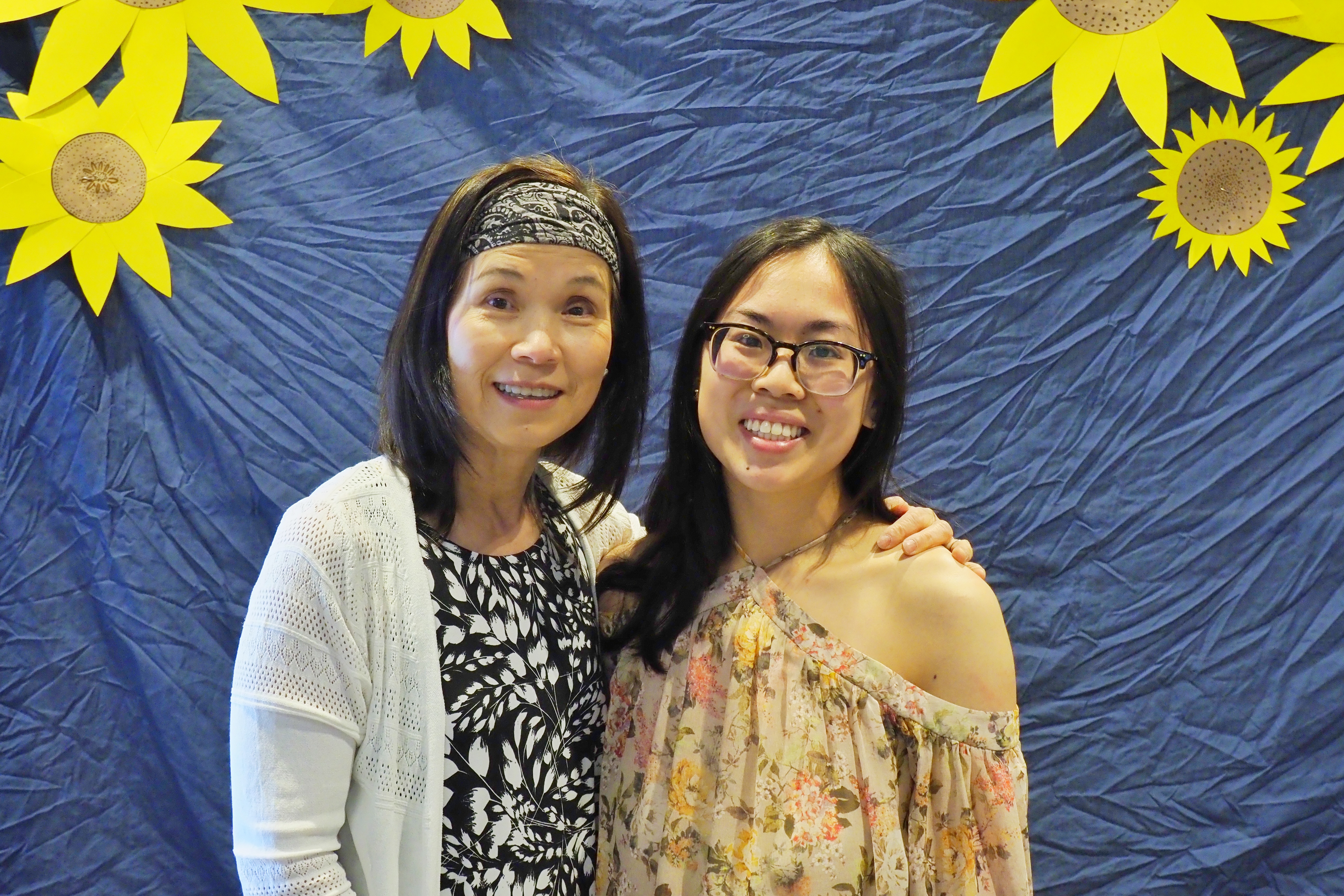
Heritage language is often lost by the third generation, but Faculty of Rehabilitation Medicine researcher June Cheung (pictured here with her mother) found that second generation family members play an important role in preserving mother tongue. (Photo supplied)
In an attempt to preserve their mother tongue, also referred to as a heritage language, more and more parents are choosing bilingual school programs for their children. But a new University of Alberta study suggests that the overall success of these programs depends heavily on what happens in the home.
June Cheung, who was a student in the Faculty of Rehabilitation Medicine's MSc in Speech-Language Pathology program and successfully defended this thesis study, found that children of immigrant families often struggle with their parents' language and culture, and by the third generation many children can't speak their native tongue at all.
While Cheung was interested in this topic from a clinical and education perspective, she also found the research to be quite personal.
"My parents emigrated from Hong Kong, but I was born and raised here in Canada. My parents speak Cantonese to me and I try to speak Cantonese back. But if I'm in a rush or I'm talking about something I don't know the vocabulary for, I'll switch to English. I'm not as fluent in my family's language as my parents are. I wanted to see, is this a common thing? Am I just really bad at learning Chinese? Especially since my parents had put me in the bilingual program as a child."
Cheung, who was supervised by chair of the Department of Communication Sciences and Disorders, Karen Pollock, looked at the impact of the Mandarin-English bilingual program administered through the Edmonton Public School Board on the heritage language abilities for second- and third-generation Chinese-Canadian students.
Looking at how bilingualism ties into speech-language pathology is important for the evolution of the field, says Cheung, especially with Canada being a multi-cultural country, which means many children are exposed to a wide range of languages at a young age. Studies suggest that bilingualism in children is associated with enhanced executive functioning, including working memory, flexible thinking and inhibitory control.
Cheung found that the bilingual program especially helped children with reading and writing in their heritage language, factors that help to establish a deeper understanding.
"Most of the time for heritage languages, it's mostly oral use at home. You're speaking and listening, but very rarely will you learn reading and writing."
While Cheung's study focuses on the transmission of the heritage language across generations, the disconnect actually starts in the second generation.
"I wasn't expecting the language shift to be so quick. The literature says that by the third generation the language is lost, but the shift that you're worried about happens in the second generation," said Cheung. "When parents immigrate to Canada, they worry about their children learning English. They often speak to their children in English instead of their first language, because they want their children to adapt and get ahead in their new country. This is when heritage languages are often lost."
So what does this mean for immigrant families looking to preserve their culture?
"We want parents to know that it's important to speak to your child in the language that you speak best, because that allows them to have a richer language exposure when they're younger. If immigrant parents are speaking broken English to their children, your child's not being exposed to the same language richness they would if you were speaking your first language. It's important that you're using your heritage language at home. The school programs help, but the home has a bigger impact."
With Cheung knowing first-hand what it's like to not be able to fluently speak your family's dialect, she urges parents to let their children learn at their own pace.
"Don't worry about your child acquiring English-this is something that will come naturally as they integrate into their new home. The question is: will they hold on to their mother tongue?"
________________________________________________________________
Tips for preserving heritage language for the next generation:
- If the heritage language is the one you are most comfortable and confident in, make sure to speak it to the children at home. Don't be afraid that they won't learn English - they will still be receiving exposure to English through school, entertainment and friends.
- Encourage opportunities for the child to be immersed in the language: bilingual program, visits to the country of origin, spending quality time with grandparents or other speakers of the language.
- Help your child to appreciate and understand their culture and family background.
- Contact a speech-language pathologist with any concerns about language development. See The ACSLPA website to find a speech-language pathologist near you.